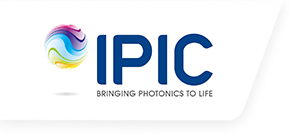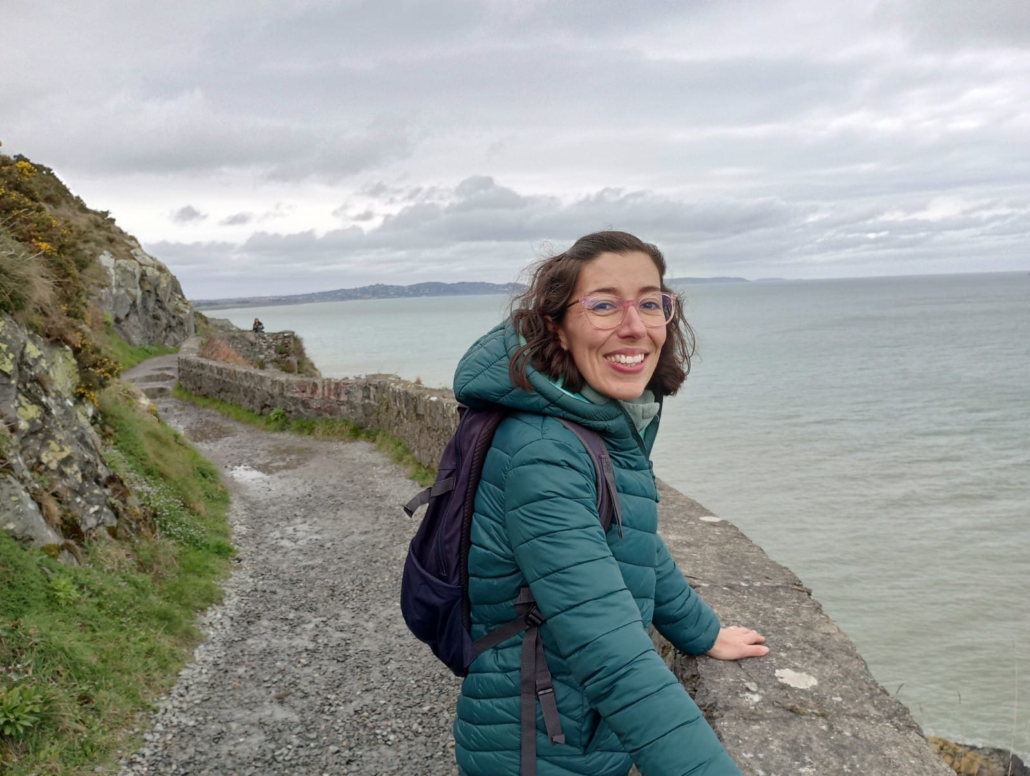My name is Leidy Rodriguez, I am from Colombia, a country in South America renowned for its coffee plantations. At present, I am a MSCA Sparke fellow at Dublin City University, specifically, in the Radio & Optical Communications Laboratory.
During my time at school, I had the chance to explore fundamental subjects such as physics, chemistry, and math. From my early years to more advanced studies, I immersed myself in various disciplines like basic electronics and programming. These subjects played a pivotal role in shaping my understanding and perspective.
While progressing through the last year of secondary school, I found myself completely engrossed in the world of science. I had the chance to enrol in basic electronics classes, and I became captivated by the enchanting glow of a light-emitting diode (LED) and the lightning-fast executions of multiple tasks performed by microcontrollers held me in fascination, all the while pondering the intricate network of transistors concealed within the chip. This was the instant when I realized that electronic engineering was my true calling. However, in that instant, the horizon of my ambitions was yet to expand. Initially, my motivation was driven by the desire to learn and excel academically, encouraged by my parent’s guidance that education paved the way to get knowledge and develop skills to get well-paid jobs. My passion for a scientific career truly took flight when I encountered semiconductor theory under the guidance of Professor Liliana Tirado from the University of Quindío in Colombia. Her kindness, education, culture, and intelligence shone through as she shared her experiences from a research laboratory. Taking our class into the Epitaxial Growth Laboratory, she unveiled the world of research processes, sparking a revelation within me. That was the precise juncture when I became aware of the boundless potential embedded within research – it’s not just about to satisfy curiosity, but about actively forging a path toward expanding the boundaries of human knowledge and driving the wheels of progress ever forward.
The moment when my path towards a scientific journey crystallized stands vividly in my memory. Taking a step back, it was during my bachelor’s degree when some events triggered a cascade of inspiration that ultimately guided me toward an academic career. As my university years progressed and I attained my degree, a pivotal opportunity presented itself – an invitation to join the Interdisciplinary Institute of Sciences at the University of Quindío. This opportunity was in the form of a research initiative supported by COLCIENCIAS in Colombia, offering me the chance to embark on a year-long project under the mentorship of a principal investigator. I found myself surrounded by like-minded individual researchers who guided and mentored me. Their insights and collective expertise paved the way for a clear path into a scientific career. During this period, my passion took root, and my aspirations to make a meaningful impact in the academic world began to flourish. Within this supportive environment, my aspirations transformed into a dedicated commitment to contribute significantly to the field of science. This dedication propelled me forward on an exciting journey of academic exploration, offering intellectual freedom that enabled me to better understand the world.
The journey toward becoming a researcher started when I made the decision to pursue a master’s degree. From that pivotal moment onward, I set out on a search to discover a subject that truly ignited my passion, along with exploring available scholarships to fund my academic pursuits. However, an obstacle emerged, the English language. Up until that juncture, I hadn’t fully grasped how crucial English is for seeking a scientific career. Most foreign universities required proficiency in English as a second language for admission. Though I felt somehow overwhelmed by my limited grasp of English, I refused to be discouraged and embarked on a journey of self-directed language learning. From that moment, I understood that it could be difficult to get a scholarship from universities where English is the main language, but I also knew I needed to get better at English. I understood that improving my English would take time, yet I was eager to start my master’s degree as soon as possible. So, I started looking into scholarships in Mexico because I had heard about people from my university who had pursued master’s and PhD degrees with the support of scholarships from ConaCyt in Mexico. Fortunately, some of these people shared information about living costs, visa requirements, research facilities, and advice for handling interviews and admission exams. With this advice in mind, I went through the complete application process. After putting in hard work and staying committed for about four to five months, I finally received the acceptance letter I had been eagerly waiting for. I could barely believe that I had successfully secured a highly desired spot to begin my master’s degree – something I had really wanted. Even though that day was one of the happiest in my life, there was also a bit of sadness and fear mixed in. I knew I would have to leave my country and my family behind, with hopes for a better future. Once I moved to Mexico, I quickly realized how different things can be, despite being on the same continent and sharing the same language. The culture, food and traditions were a bit different, but I found the people to be kind and friendly. Being a foreigner, professors and classmates were eager to share their culture and introduce me to Mexican cuisine. As my classes began, I had the chance to learn from amazing professors who inspired me to push myself and overcome my weaknesses. A moment that truly caught my attention was when I had the chance to set up my first experiment in the lab. Exploring the interference of light waves as they passed through a diffraction grating fascinated me. Learning about concepts like refractive index, diffraction orders, and understanding how light can be used for measurements was truly eye-opening and exciting.
After completing my master’s degree in Optomechatronics from the Centre for Research in Optics in Mexico, I embarked on a journey to pursue a PhD with a strong determination to achieve my goal of becoming a researcher.
During my years as a doctoral student, I was always eager to learn and explore. I had a strong curiosity that drove me to uncover the intricacies of laser technology and the complex inner workings of fibre optics. My enthusiasm led me to seize a valuable opportunity – spending a year in France collaborating on research at Sorbonne Paris Nord University. Under the guidance of Professor Min Won Lee, I had the privilege to immerse myself in the captivating realm of lasers and fibre optics. Through this experience, I began to realize the vital role these technologies play in shaping global communication networks, revolutionizing data transmission and driving advancements across diverse industries.
The hands–on experiences and theoretical insights gained during my PhD journey not only sharpened my technical skills, but also solidified my commitment to contributing to the ever-evolving scientific inquiry.
Upon completing my PhD degree in science from the National Institute for Astrophysics, Optics and Electronics in Mexico, I started looking on a quest for postdoctoral positions to transition into an independent researcher. My search led me to a promising opportunity in Ireland: the MSCA COFUND SPARKLE fellowship programme. This opportunity perfectly aligned with my ambitions of evolving into an impactful researcher who makes significant contributions to the scientific community.
I believe it’s important for everyone to take the time to understand their strengths, passions, and weaknesses as a means of discovering their path. Additionally, I recommend exploring opportunities such as attending science workshops and visiting universities during open days. Engaging with the scientific community and seeking their insights can provide invaluable perspectives for making well-informed career decisions.
In addition, I encourage maintaining an open mind and recognizing the immense value of collaborating within interdisciplinary teams. Joining such teams allows for the exchange of expertise, knowledge, and skills, which can lead to innovative and impactful outcomes.
Drawing from my own experiences, I would suggest that individuals from non-English-speaking countries consider beginning to learn English. This step can significantly benefit their personal and professional journeys. Lastly, I want to emphasize the significance of persistence. Refusing to give up is essential for achieving continuous improvement and growth, allowing you to evolve into a better version of yourself.
Sparkle has received funding from the European Union’s Horizon 2020 research and innovation programme under the Marie Sklodowska-Curie grant agreement No. 847652 and from Science Foundation Ireland.






